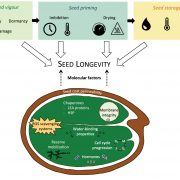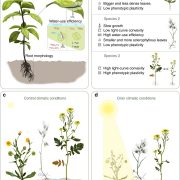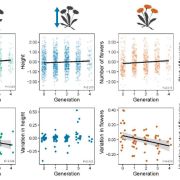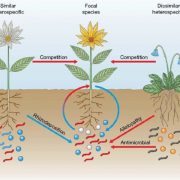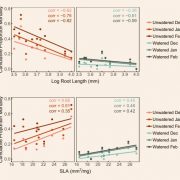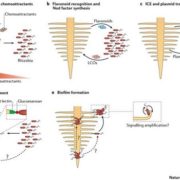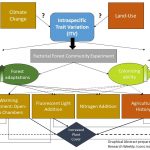Ploidy affects the seed, dormancy and seedling characteristics of a perennial grass, conferring an advantage in stressful climates ($) (Plant Biol.)
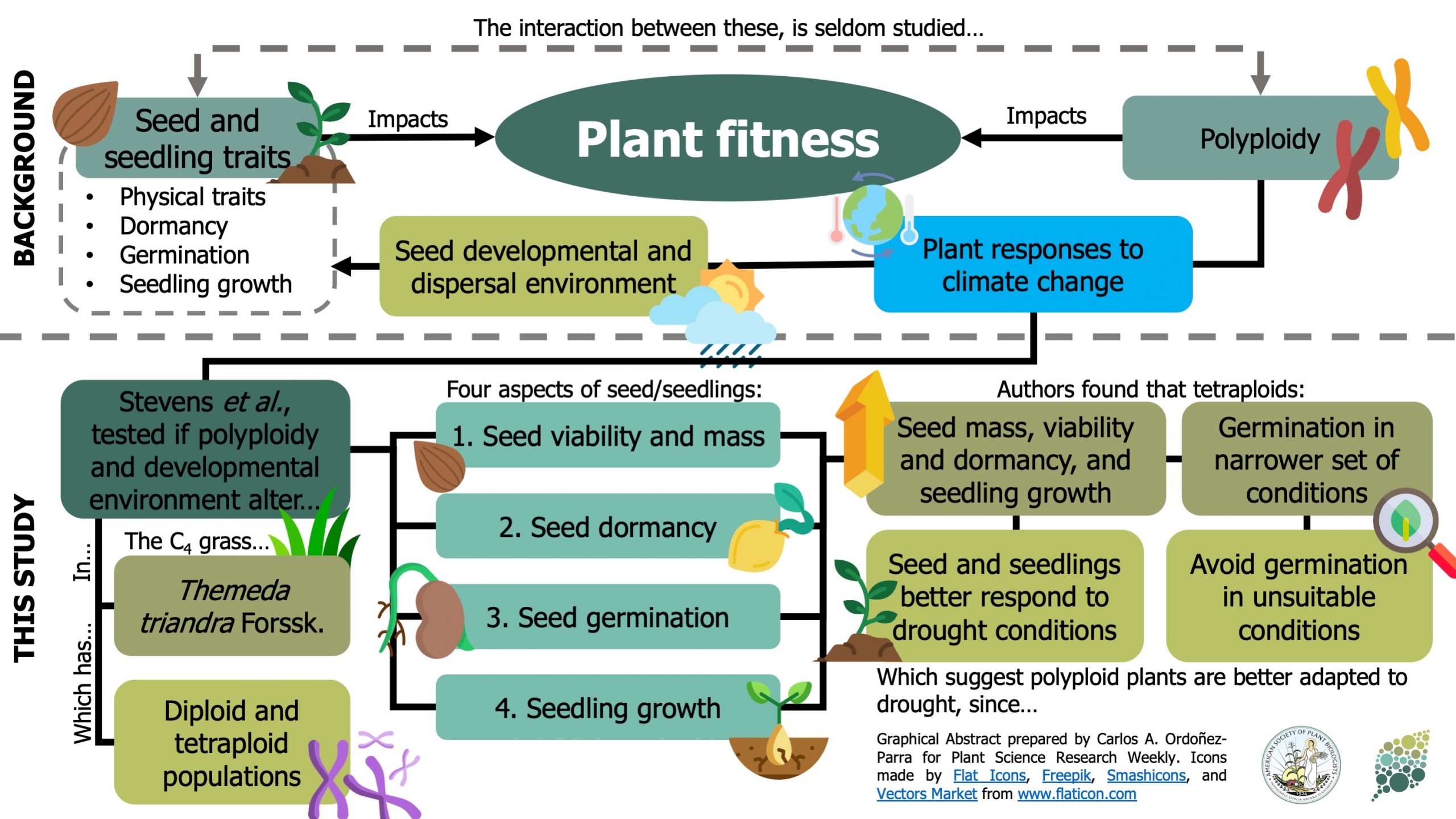 Both polyploidy (i.e., having more than two sets of chromosomes) and seed traits influence plant fitness. However, the interaction between these two factors is underexplored. Here, Stevens et al. tested the effect of polyploidy and seed developmental environment on 1) seed viability and mass; 2) seed dormancy; 3) seed germination under drought; and 4) seedling growth. To achieve this, they used Themeda triandra –an Australian C4 grass– seeds from diploid and tetraploid accessions, which came from three different regions and were exposed to either ambient or experimental warming conditions. Despite the fact that the region and the warming treatment differentially affected seed traits, the authors found tetraploid seeds had higher mass, viability, and dormancy in general. Also, seedlings from tetraploid plants were larger and grew faster. However, tetraploid seeds germinated on a narrower set of conditions. These results indicate that polyploid plants are better adapted to drought by having seedlings that perform better under drought and restricting germination in unsuitable conditions –via seed dormancy and stricter germination requirements. (Summary by Carlos A. Ordóñez-Parra) Plant Biol. 10.1111/plb.13094
Both polyploidy (i.e., having more than two sets of chromosomes) and seed traits influence plant fitness. However, the interaction between these two factors is underexplored. Here, Stevens et al. tested the effect of polyploidy and seed developmental environment on 1) seed viability and mass; 2) seed dormancy; 3) seed germination under drought; and 4) seedling growth. To achieve this, they used Themeda triandra –an Australian C4 grass– seeds from diploid and tetraploid accessions, which came from three different regions and were exposed to either ambient or experimental warming conditions. Despite the fact that the region and the warming treatment differentially affected seed traits, the authors found tetraploid seeds had higher mass, viability, and dormancy in general. Also, seedlings from tetraploid plants were larger and grew faster. However, tetraploid seeds germinated on a narrower set of conditions. These results indicate that polyploid plants are better adapted to drought by having seedlings that perform better under drought and restricting germination in unsuitable conditions –via seed dormancy and stricter germination requirements. (Summary by Carlos A. Ordóñez-Parra) Plant Biol. 10.1111/plb.13094
[altmetric doi=”10.1111/plb.13094″ details=”right” float=”right”]


